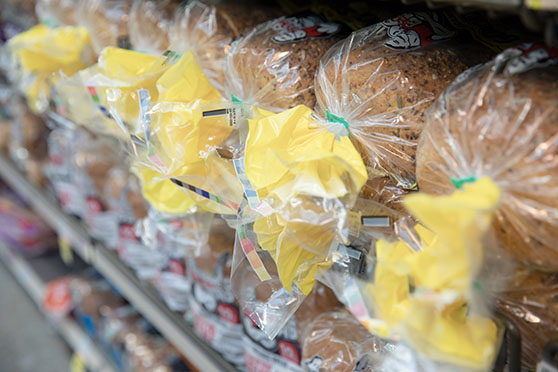
Changing consumer perspectives around packaging and food waste
March 7, 2022
By Emily Park
Brought to you by Kwik Lok
 Photo: Kwik Lok
Photo: Kwik Lok By Emily Park
Approximately two-thirds of consumers find the recyclability of packaging important, but according to the 2021 Global Buying Green Report released by Trivium Packaging, many consumer perceptions do not line up with scientific facts.
While 55 percent of consumers associate plastic with “harmful” and 36 percent associate plastic with “wasteful,” if manufactured and disposed of properly, plastic packaging can be beneficial when you factor in the environmental impacts of food waste.
Brands can help correct misconceptions by putting more information directly on food packaging. A noted example is a company based in the UK that includes information about environmental impact of both the food and the packaging on the label. Making it clear for consumers, helps shoppers make better judgement calls noted sustainability and packaging expert Bob Lilienfeld, president of Robert Lilienfeld Consulting.
“Consumers do not have the scientific information to make well-informed sustainable packaging choices,” Lilienfeld said. “We need to provide accurate information and take responsibility for helping in the education process. We need to give them the information.
A big part of solving the problem is not only educating consumers more about packaging, but also helping them understand the impact of food waste — especially the food waste that happens in the home.
Out of the 931 million tons of food wasted each year, approximately 61 percent occurs in the home. Total, annual food waste contributes to about 8-10% of global green house gas emissions, according to the United Nations Environment Program’s Food Waste Index Report 2021.
In the current climate, consumers are even more incentivized by concerns over rising food prices caused by supply chain challenges.
“Doing what is right for the environment takes leadership and ethics. Consumers want to see this kind of leadership. I think we are getting to the point where the consumers are not going to take inaction on the environment anymore,” Lilienfeld said. “The brands and retailers who really stick their necks out to make the right decision…I think we’re going to see those brands resonate with consumers and really win the marketplace.”
Retailers can find sustainability education resources and tools from organizations such as Kwik Lok, who offers a suite of sustainability resources available to bakery retail partners
Print this page
Leave a Reply